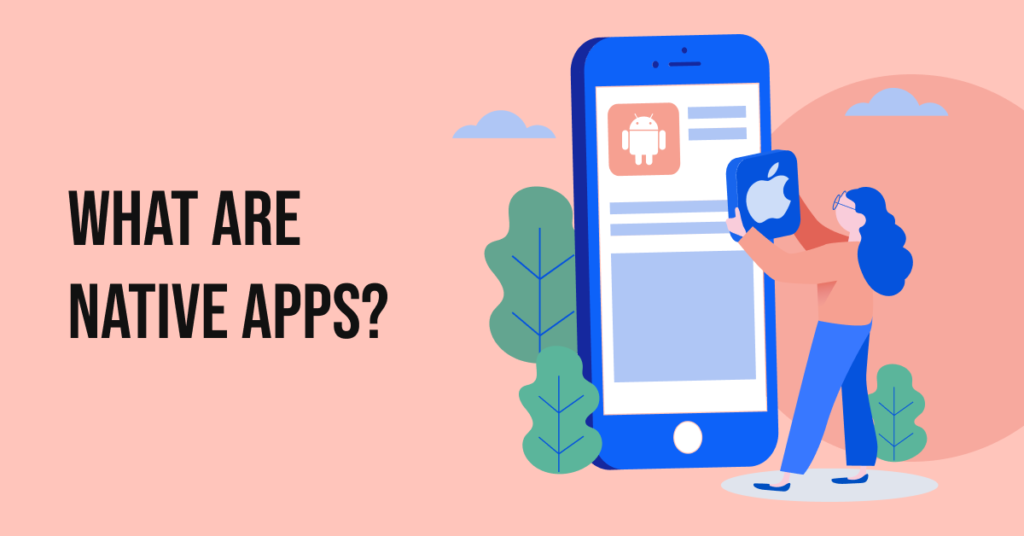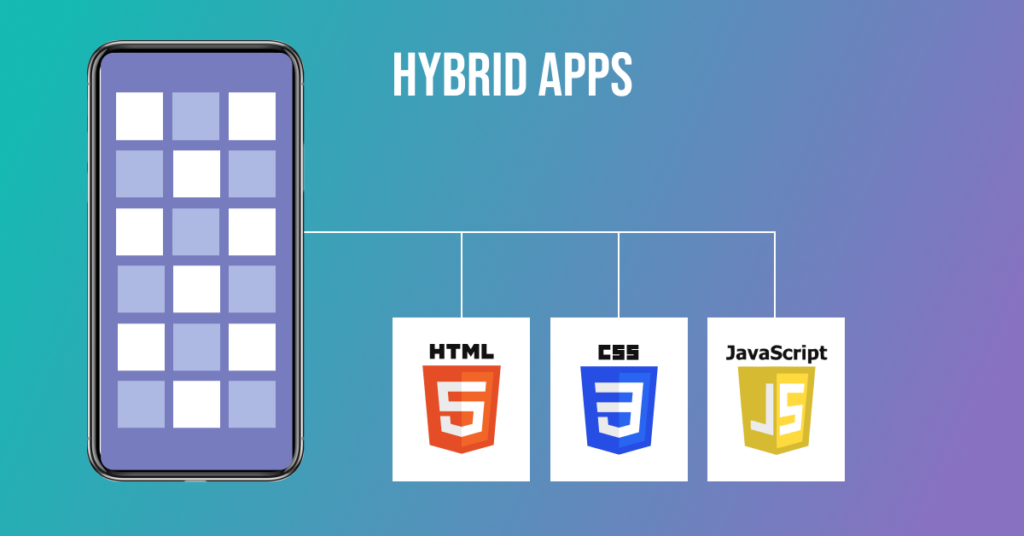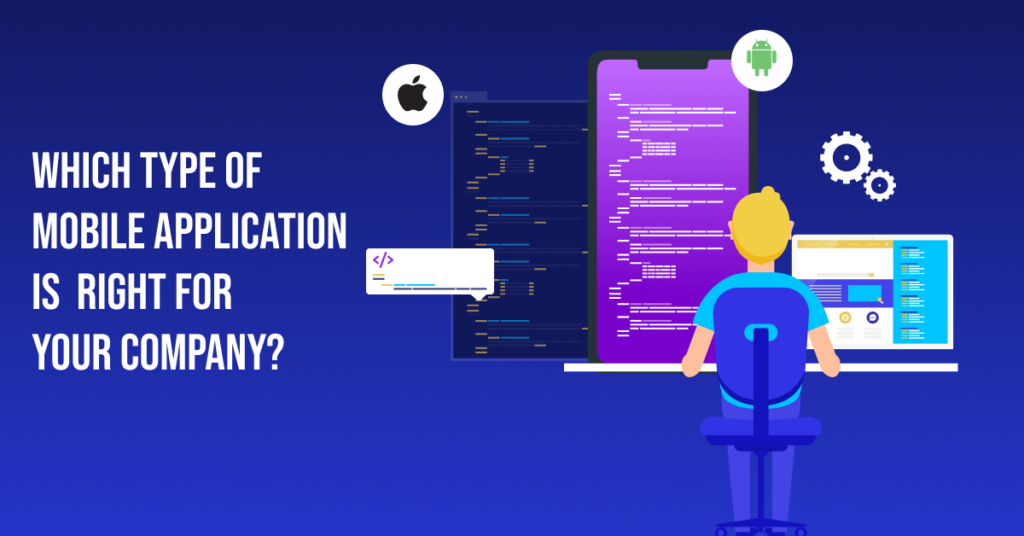
A Serene Guide for Mobile App Development in 2022 — Native or Hybrid?
-
By Amardeep Singh Sandhu
-
26th November 2021
The moment you decide to have a mobile app, short for application, for your business, the first question that suddenly strikes your mind is how mobile apps are made.
The Apple App Store has 1.96 million apps, and the Google Play Store has 2.87 million apps available for download. However, despite using mobile apps in everyday life for almost everything, most people do not have an idea of what goes behind creating a mobile app.
To be honest, it doesn’t matter either unless you are a coding geek. However, one should be aware of the basics before investing in mobile app development. Recent research from GoodFirms shows that the average price of developing an app is between $24k to $150k, and the average time taken to develop an app can vary from 4.5 weeks to 26 weeks. So, indeed there is a lot at stake.
In this blog post, we will try to water down the technical information related to mobile app development in 2022 in easy terms that everyone can comprehend while keeping the serenity intact.
The average hourly rate of a US app developer is somewhere around 100$/hr, while an Indian app developer can create the same thing for you somewhere around an average hourly rate of $30/hr. The major reason behind the rise of the mobile IT outsourcing industry; we are not going into the details of that. It is just that we are saying that we, Deftsoft, can develop an impeccable mobile app for you for any platform: iOS, Android, or Cross-Platform.
What are Native Apps?

To put it in simple words, native apps are platform-specific apps that are coded in the languages particular to the platform. It means if you are developing a native app for Android, it will be coded in Java or Kotlin, i.e., platform-specific programming languages. If you are developing a native app for iOS, it will be coded in Objective C or Swift.
Similarly, there are coding languages for other types of platforms like Windows and Blackberry, but a major share of the users use Android and/or iOS devices.
Kotlin is the official app language developed by Google to create mobile apps for its operating system, Android. Similarly, Swift is also the official language developed by Apple to create mobile apps for its operating system, iOS.
Native apps are considered better than other apps because they provide app developers with their SDK, interface elements, and development tools that offer a plethora of perks for mobile app development compared to other apps development systems.
Pros of Native Apps:
Native apps are fast
The fact native apps are native to the platform they load faster. They come with plenty of preloaded features that make them highly responsive. As they also have access to all the features present on the device, they work flawlessly with the platform.
Native apps are secure
Native apps are safeguarded by various layers of an operating system. As a result, they are less likely to face security threats as there is no reliance on third-party systems.
Native apps have a recognizable UI/UX
Native apps are written in languages specific to the ecosystem of the platform and use the official APIs. This results in a better user experience due to better performance.
Easily scalable
Native apps are easily scalable to the latest updates in the operating system on the platform due to the fewer complexities in the code.
Fewer Bugs
As native apps use native SDK and development tools during development, they have fewer bugs than hybrid apps.
Cons of Native Apps:
– Native apps take time to develop.
– Native apps can be used on a single platform.
– Native apps require frequent upgrades
What are Hybrid Apps?

Hybrid apps are a combination of native apps and web apps. They are primarily web applications moduled in a native app environment. They display the web contents in the app form using the web technologies such as JavaScript, HTML5, and CSS and rely on native browsers like Android WebView or UIWebView to enable smooth interactions. To put it in simple words, hybrid apps can be used on multiple platforms.
React Native is one of the top choices of hybrid app development frameworks for development teams across the globe.
Pros of Hybrid Apps:
– Hybrid apps can be used on multiple platforms such as Android and iOS. Therefore, it offers a cost-effective solution for mobile app development. There is no need to create a separate app for each platform.
– Hybrid apps use simple coding languages such as HTML and have a simple backend structure. As a result, they are easy to update.
– Hybrid apps take less time to develop as compared to native apps.
Cons of Hybrid Apps:
– Hybrid apps are not fully scalable to the platform-specific features.
– Hybrid apps have heavy third-party reliance that impacts the performance and security of an app.
– UI/UX of the hybrid app may seem foreign to the native platform, which may hamper the user’s experience.
Which Type of Mobile Application is Right for Your Company?

This is the most concerning question for business owners. To be honest, there is no universal answer to this. It all depends on the needs of a business, budget, timeframe, objectives, features of the apps, and many more similar factors. The best way to make a well-informed decision is to get in touch and sit with an expert mobile app developer or app development company.
At Deftsoft, we pay huge attention to strategy and planning. In this first step of mobile app development for our clients, we schedule a meeting with our clients to offer the best possible solution. Our teams of mobile app developers are experts in creating both types of Hybrid and Native. Contact one of our experts to discuss your project.
Recent Articles
-

Unity vs Unreal Engine 5: Which is Better?
-

Non-Negotiable Tips for Developing a P2P Lending Platform
-

The 8 Leading Cross-Platform App Development Frameworks You Should Know
-

Step-by-Step Guide: How to Build a dApp on Ethereum with Ease
-

Why Does Your Business Need Blockchain Development Company’s Expertise?

Amardeep Singh Sandhu
 26th November 2021
26th November 2021